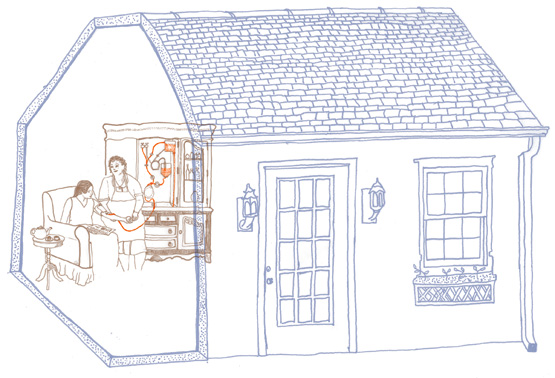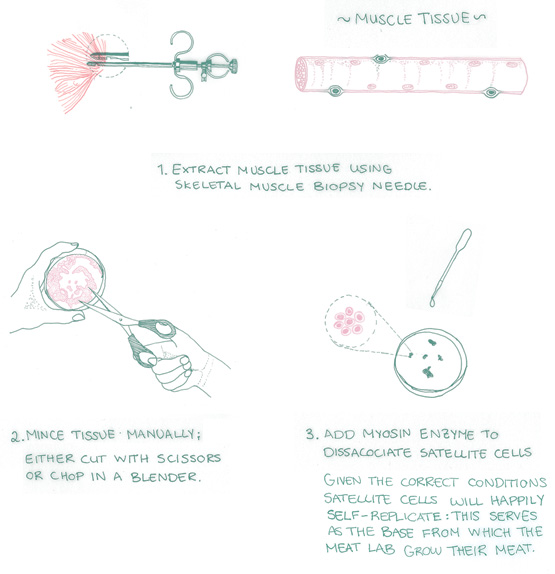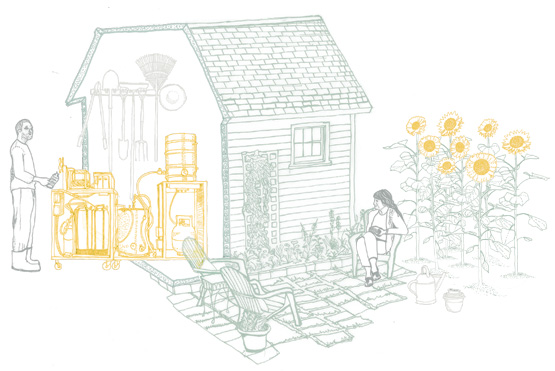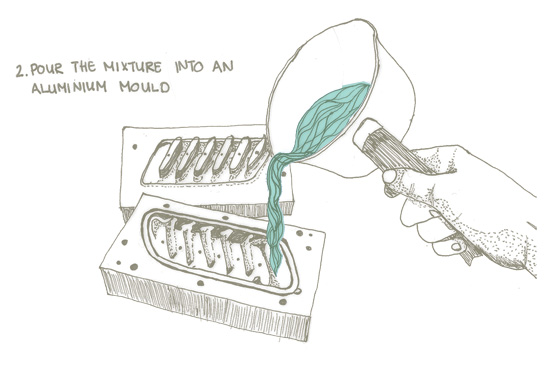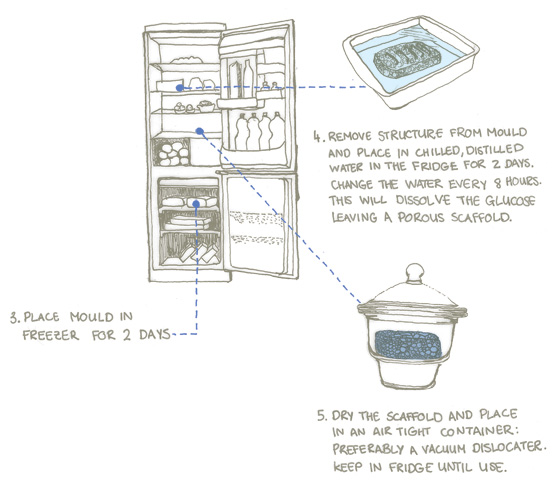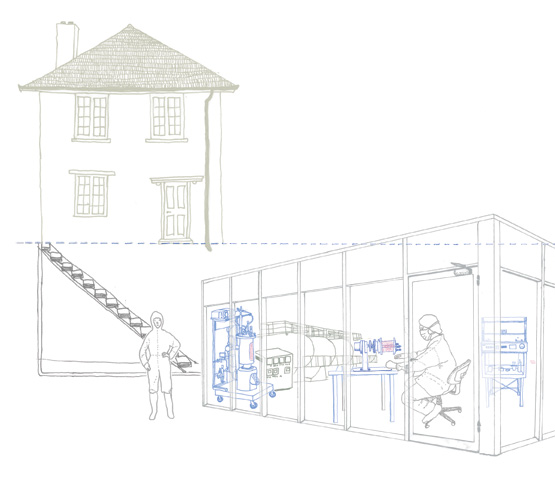There is an increasing rise in awareness of the need for a sustainable food system (i.e. organic food, buy local, grow at home). These movements are often suspicious of scientific developments, frequently equating them with the opaque and morally questionable activities of the food industry, as demonstrated with the GM debate. Rather than discarding scientific developments as a tool for industry, this research project aims to challenge this polarised and simplified view by exploring how science could help empower individuals and communities. The Community Meat Lab explores how emerging food-related technologies could be applied outside of the industrial food system, allowing people to make a social and emotional investment in the production of their food rather than a monetary one.
A number of scientists are researching the prospect of growing meat “in vitro” as a solution to environmental and health concerns related to current global meat consumption. Although it is possible to culture muscle tissue within a lab environment, they have yet to discover how to scale up production to an industrial level. Therefore, now is an opportune time in this emerging technology’s development to envision how such a process could be structured using an alternative mode of production, independent of the industrial food system. Imagine a community of people that use scientific techniques to grow meat “in-vitro”, sharing knowledge and resources to create delicious ‘victimless’ meals. By suggesting an adoption of sophisticated scientific techniques in a domestic setting, the project also questions the position of emerging technologies within our society.
The illustrations that demonstrate how the Community Meat Lab could function. As a research based project, this is still a work in progress.
